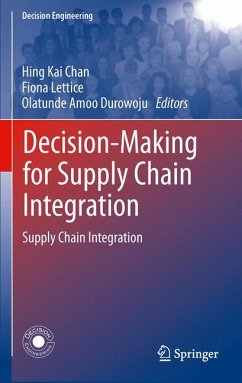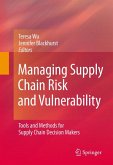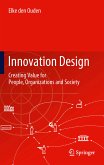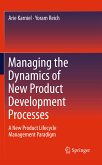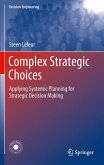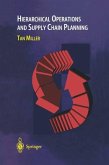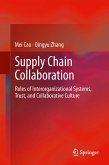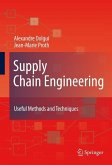.Supplier selection, pricing strategy and inventory decisions in multi-level supply chains, .RFID-enabled distributed decision-making, .Operational risk issues and time-critical decision-making for sensitive logistics nodes, Modelling end to end processes to improve supply chain integration, and .Integrated systems to improve service delivery and optimize resource use.
Decision-Making for Supply Chain Integration provides an insight into the tools and methodologies of this field with support from real-life case studies demonstrating successful application of various decision-making techniques. By covering such a range of topics in this way, Decision-Making for Supply Chain Integration is a useful reference for researchers looking to develop their knowledge or find potential new avenues of research.
Dieser Download kann aus rechtlichen Gründen nur mit Rechnungsadresse in A, B, BG, CY, CZ, D, DK, EW, E, FIN, F, GR, HR, H, IRL, I, LT, L, LR, M, NL, PL, P, R, S, SLO, SK ausgeliefert werden.

